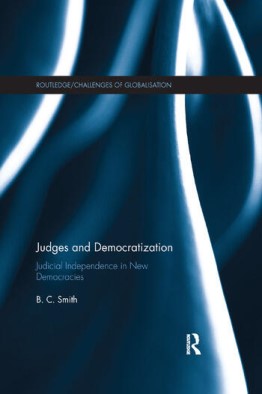We are now closed for the Christmas and New Year period, returning on Monday 5th January 2026. Orders placed during this time will be processed upon our return on 5th January.

Judiciaries must be politically impartial and immune from political interference if democracy is to be consolidated in countries in transition from authoritarian rule. Without an independent judiciary there can be no rule of law, and without the rule of law there can be no democracy.
Judges and Democratization is based on the premise that democracy cannot be consolidated without the rule of law of which judicial independence is an indispensable part. It pays particular attention to the restraints placed upon judicial independence, and the reforms which are being applied, or remain to be adopted, in order to guard against the different kinds of interference which prevent judicial decisions being taken in a wholly impartial way. It examines the paradox of judicial activism arising from the independence endowed upon the judiciary by post-authoritarian constitutions. The book asks how, in the context of this endowed authority, such accountability can be made compatible with the preservation of judicial independence when the concept of an accountable, independent judiciary appears to be a contradiction in terms.
This text will be of key interest to teachers and students of politics, comparative government/politics, combined politics and law, democracy and governance, human rights and democratization, and democratic development.